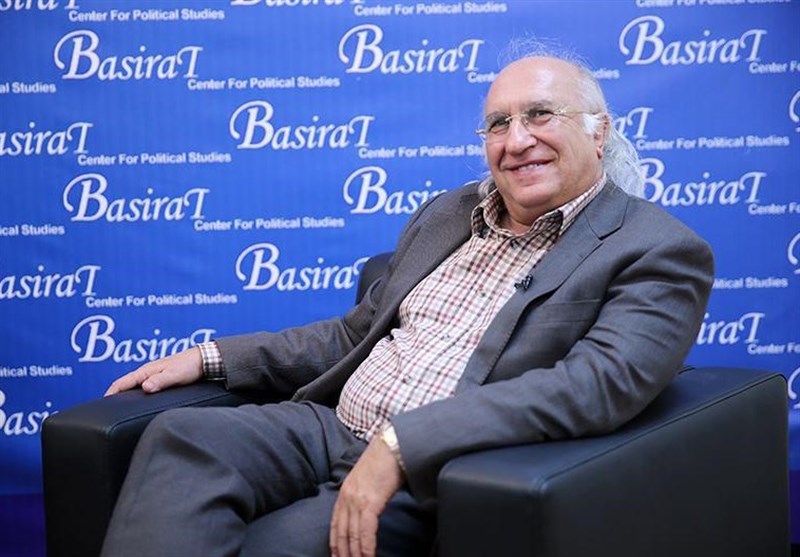
JCPOA is a part of big plan and it’s not a program for now: Iranian Academic

"JCPOA is a part of big plan and it’s not a program for now. It’s a big plan in collaboration with other regimes like FATF" Dr. Abu Mohammad Asgar-Khani said to Basirat.
"This is a scenario for the Islamic Republic of Iran and for the people of Iran and then all of these, FATF, JCPOA and HR3364 and ISA plus to the additional protocol of NPT, the NPT itself and CTBT and MTCR, all together are security regimes,” he added.
Dr. Abu Mohammad Asgar-Khani is one the most prominent professors of international relations at Tehran University. His main field of interest is international security and nuclear arms control diplomacy. He is the author of numerous articles and publications from among which we can refer to International Regimes” book.
Basirat: As first and general question, what do you think about the future of JCPOA?
Askarkhani: I consider the JCPOA not as a program, but as a plan for the 25years in the future; future of Iran. So if you consider that the JCPOA is an international regime and by a regime we define it as a set of principles, norms, rules and decision making procedures around which actors expectations converge in a given issue-area. The most important part of any regime is the principles and then it comes to the norms, rules and decisions making procedures.
Usually the principles of any given regime is written in the introduction; where the preamble of any regime. So the JCPOA reads as its principle, the eternal disarmament of Iran. So it means that the principles are related to the objectives and the objective of JCPOA is as the document that it says Iran is going to be disarmed for the ever. It is not the Islamic Republic of Iran, but it is Iran. I mean it is the Iranian future will be disarmed and it is going to be disarmed not only from nuclear bomb, but it says nuclear weapons which means that Iran and the people of Iran for the next hundreds years and the next generations are going to be disarmed forever from having any kind of and any means of weapons. It doesn't mean only bomb but any device, any tactical weapons and any kind of delivery system.
Basirat: So you mean that JCPOA is a part of big plan and disarming Iran form the nuclear weapons is just first step of that?
Askarkhani: That’s true. It is a part of big plan and it’s not a program for now. It’s a big plan in collaboration with other regimes like FATF. FATF has its own ingredients; money laundering, terrorism and weapons of mass destruction. That is the three cores of FATF. The primary concern is weapons of mass destruction and then terrorism and then money laundering. Money laundering is interpreted as a way of funding and sponsoring the so called the terrorism and weapons of mass destruction. So if you have a look at FATF and then JCPOA, they are parallel norms there. Parallel objectives, parallel decision making procedures. JCPOA is weapons of mass destruction and FATF is weapons of mass destruction again. Then the other part of triangle is Iran sanction’s act ISA.
So if you have a look at ISA in 1996 and then if you have a look at HR3364 so you come to know that again there are parallel principles, parallel norms and parallel decision making procedures. So it is also related to terrorism, weapons of mass destruction. Then by that you will come to know that weapons of mass destruction does not mean only nuclear bomb, any device and any nuclear weapons and biological weapons and chemical weapons. So this is a scenario for the Islamic Republic of Iran and for the people of Iran. And then all of these, FATF, JCPOA and HR3364 and ISA plus to the additional protocol of NPT, the NPT itself and CTBT and MTCR, all together are security regimes.
Basirat: Please let me to ask another question about North Korea; these days we hear about the increasing tensions between Washington and Pyongyang. What do you think? Kindly explain
Askarkhani: You see I wish for the first time in the history, the United States of America and its decision makers welcome to the common sense that military intervention in North Korea is not necessary, it is redundant and it must be tackled through some kind of give and take process. Because it is impossible to have nuclear intervention in North Korea. What the United States is worried about is possible integration of the South Korea with North Korea. If South Korea and North Korea get integrated, they become united like United Kingdom, is not for the United States but for China.
It means that for the first time I think the United States welcome to the common sense that it is necessary to have some kind of compromise there. It is impossible to use nuclear weapons there and the point is that the United States knows that any kind of military intervention will cause for the second destruction of Japan, not South Korea.















